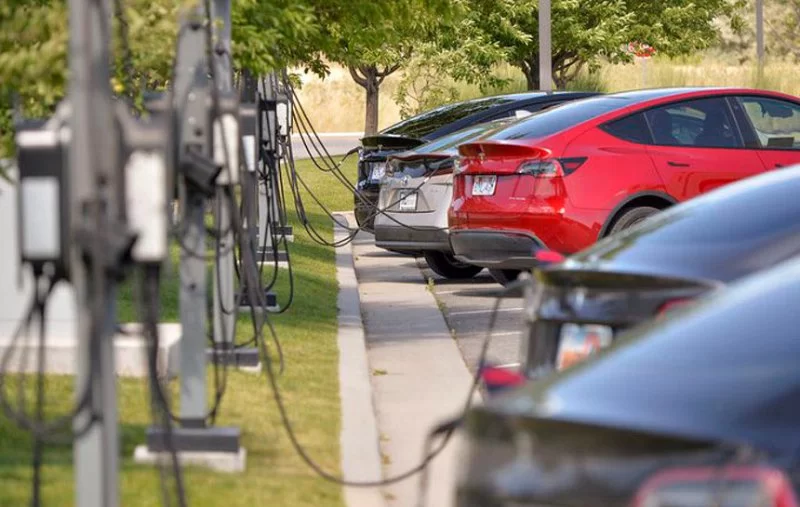
- why-federal-ev-charging-infrastructure-bills-matter
- key-elements-of-the-new-legislation
- how-will-the-bills-impact-drivers-and-communities
- legal-implications-for-private-sector-and-investors
- case-study-how-local-policy-alignment-accelerated-ev-rollout
- get-legal-guidance-for-ev-infrastructure-from-esplawyers
1. Why Federal EV Charging Infrastructure Bills Matter
The transportation industry is undergoing a quiet revolution, and at the center of it are the Federal EV Charging Infrastructure Bills. These legislative efforts aim to address one of the key obstacles in EV adoption: insufficient and inconsistent charging networks across states. These bills are designed to create a national EV charging backbone, much like the highway system built in the 1950s.
Why now? Because demand is growing fast. According to a Department of Energy report, EV ownership in the U.S. has increased by over 250% since 2018. Without the infrastructure to support this growth, adoption risks plateauing. The federal government is stepping in to ensure we don’t stall on the road to sustainability.
2. Key Elements of the New Legislation
2.1 Funding and Grants
The cornerstone of the Federal EV Charging Infrastructure Bills is the allocation of billions of dollars in grants to states, municipalities, and even private enterprises. These funds can be used to build, maintain, and modernize EV charging stations—especially along interstates and underserved rural areas.
2.2 Standardization Requirements
To avoid a patchwork of incompatible systems, the legislation mandates interoperability standards for public chargers. Think of it as setting a “USB-C” standard for all EV plugs, ensuring nationwide usability regardless of car brand.
2.3 Incentives for Private Investment
Tax incentives and public-private partnership frameworks are baked into the bills. This means businesses can get reimbursed or receive tax breaks for developing EV infrastructure, sparking innovation and competition in the private sector.
3. How Will the Bills Impact Drivers and Communities?
3.1 Reduced Range Anxiety
One of the biggest psychological barriers for potential EV buyers is range anxiety—the fear of being stranded without a charging point. The new bills aim to eliminate this concern by mandating fast-charging stations every 50 miles along major highways.
3.2 Urban and Rural Equity
Low-income and rural communities often get left behind in tech rollouts. Not this time. A substantial portion of funding is earmarked for these areas to ensure equitable access to EV charging and job creation around clean energy.
3.3 Lower Charging Costs Over Time
As competition increases and infrastructure matures, EV charging prices are expected to stabilize and potentially decrease—making it even more cost-effective compared to traditional gasoline vehicles.
4. Legal Implications for Private Sector and Investors
Private developers and corporations looking to enter the EV space should be aware of the legal nuances tied to the Federal EV Charging Infrastructure Bills. Contract law, zoning codes, utility easements, and environmental compliance all come into play. For example, companies that fail to meet accessibility guidelines (such as ADA compliance) could lose access to federal funding.
In one case, a commercial real estate group in Texas failed to properly license their land for public EV charging and had to forfeit over $400,000 in federal reimbursements. Legal guidance is not optional—it’s a strategic necessity.
5. Case Study: How Local Policy Alignment Accelerated EV Rollout
In Oregon, state policymakers worked hand-in-hand with federal regulators to align zoning laws, fast-track permits, and offer complementary state tax credits. As a result, Oregon leads the Pacific Northwest in EV infrastructure per capita. Their success is a testament to how well-coordinated legal and legislative frameworks can unlock rapid development.
Businesses that followed this model not only gained first-mover advantage but also built lasting partnerships with government agencies—something investors are now viewing as a growth lever.
6. Get Legal Guidance for EV Infrastructure from ESPLawyers
Whether you're a city planner, investor, or business owner, navigating the legal waters of federal EV policy requires expertise. At ESPLawyers, we specialize in clean energy law, zoning, and contract compliance. Our team has helped numerous clients secure grants, pass environmental reviews, and avoid the common pitfalls of EV infrastructure development.
Don’t let a paperwork oversight derail your opportunity to shape the future of transportation. Connect with ESPLawyers today to ensure your EV project is on the right side of the law—and poised for success.








